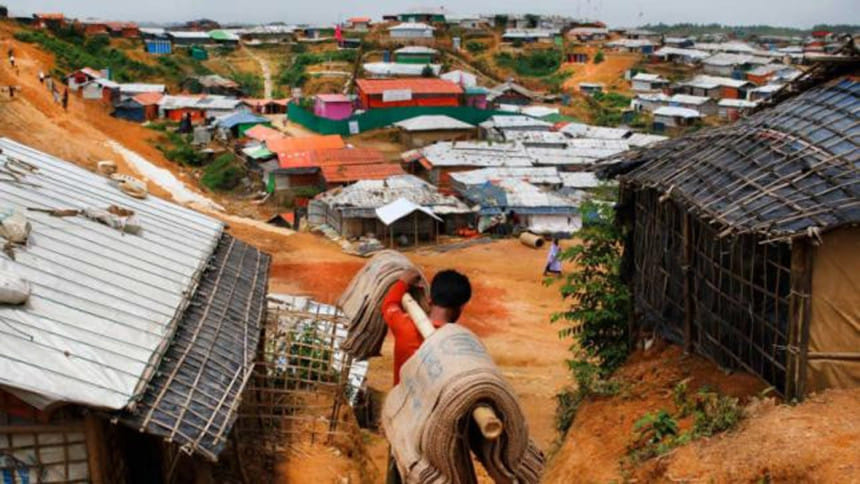Rohingya crisis is as much the international community’s problem, as Bangladesh’s

The World Bank, as part of its proposal for preparing a global Refugee Policy Review Framework has suggested to the Bangladesh government through a letter to grant freedom of movement of refugees, that they be given birth certificates, education, jobs and infrastructure. The Bangladesh government has made it clear that it does not want any measures that will lead to Ronhingyas being integrated into society. The reason for this seemingly harsh stand is purely practical. We just don't have the capacity to absorb more than a million people given the huge number of poor we have already, a number that has increased as a result of the economic fallout of Covid.
But it is also true that the Rohingya crisis is a very complex issue and it is hard to find any clear-cut solution given the volatile situation in a post-coup Myanmar and an army government that was instrumental in displacing the Rohingyas in the first place through persecution. Bangladesh generously accepted the Rohingyas (who were fleeing genocide in their homeland) because it was the right thing to do but over the last four years it has become increasingly difficult to bear the economic and social burden of being host to more than a million refugees. But what about the Rohingya people who are stranded in Bangladesh with excruciating uncertainty regarding their future? The international community has been providing humanitarian assistance to help Bangladesh cope with the crisis but donor fatigue is setting in resulting in fewer funds than committed, coming in.
The international community should realise that this is not a problem created by Bangladesh—it is a problem created by Myanmar, dumped unfairly on Bangladesh. Despite resolutions from the UN, Myanmar has not budged and continues to ignore the crisis it has created. It has not given any clear indication that it will repatriate the stranded Rohingyas and will provide them with a safe and dignified return.
It is not the ideal solution that Rohingyas will be deprived of proper education, employment and birth registration while they are in Bangladesh and cannot move out of the camps. However, some concessions need to be made regarding education and income generating activities within the camps including the one at Bhashan Char where conditions are much better (at least till now) than the cramped camps in Cox's Bazar and Teknaf. But it is understandable that Bangladesh does not want to give the impression that the Rohingyas will be integrated into the mainstream society as that would only absolve Myanmar from all responsibility and would only add to Bangladesh's economic burden. The international community with greater involvement of Myanmar's trading partners such as China, India, Japan, Indonesia and Germany, ASEAN and OIC countries has a responsibility to formulate a strategy that will repatriate the Rohingya and ensure their safe return to their motherland. If this is not possible the international community must commit to absorbing this displaced population as they have done in other instances.

 For all latest news, follow The Daily Star's Google News channel.
For all latest news, follow The Daily Star's Google News channel. 



Comments